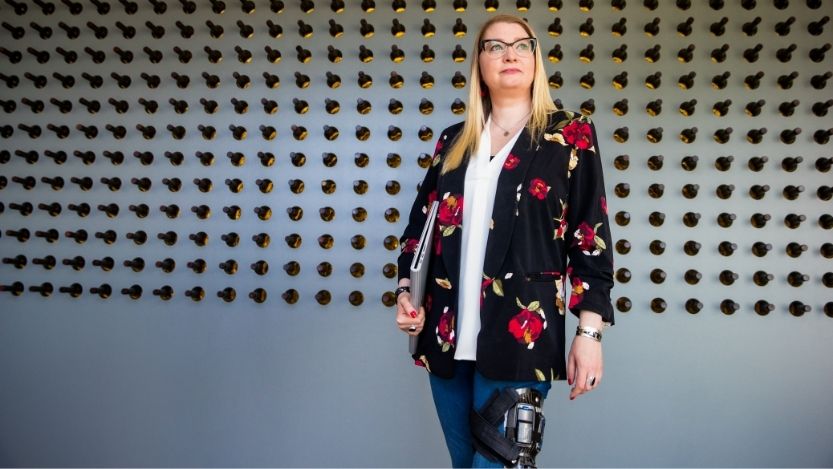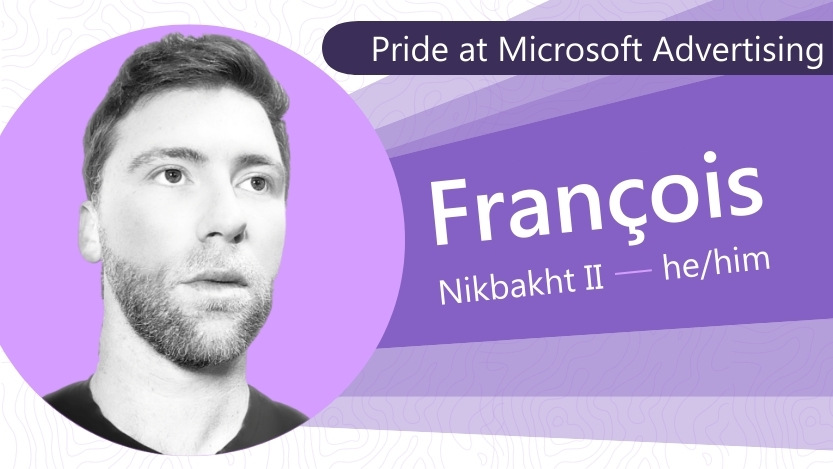Blog post
Speak up – Brands that take a stand

Consumers are looking for brands that speak about important social challenges. Millennials and Gen Z especially, have high expectations about the authenticity of brands and their purpose. There are many studies and research papers out there which showcase clearly that consumers are actively searching for brands that take a stand on their communications, with their advertising campaigns, with their ingredients of the products and even with their active role within community problems.
At the fifth edition of our event series Open Perspectives Unplugged, we spoke to companies that take a stand to explore the topic of purpose-driven brands, their challenges and future. Our guests in this conversation were Hannah Wickes, CMO of tree-planting search engine Ecosia, and Nicola Matthews, UKI Marketing Manager of mission-led chocolate company Tony’s Chocolonely.

Ecosia, founded in Berlin, being the largest European-based search engine, counts over 15 million people from 180 countries to their user base. The difference to other large search engines is that the profits from advertising are directed towards tree planting and restoration projects which directly impacts local communities. Ecosia recently announced they had planted over 124 million trees around the world.
Tony’s Chocolonely was founded 15 years ago with a mission to make the cocoa industry 100% slavery free. There are still 1.56 million children working illegally on cocoa farms in Ghana and Ivory Coast – the producers that account for 60% of the word’s cocoa.
Ecosia, as well as Tony’s Chocolonely, both belong to the pioneers of what is a growing number of brands that decided to register as Certified B-Corporation. The certification provided by the B Lab is for businesses “that meet the highest standards of verified social and environmental performance, public transparency, and legal accountability to balance profit and purpose.” Ecosia even extends their support to other social companies and labels fellow B-Corps with a green leaf in the search engine.
Branding and communities are key
But purpose alone is not sufficient: Both panelists agreed that the stronger the brand, the easier it is to achieve one’s purpose.
Hannah mentioned that Ecosia was started with a mission, but it is equally important to scale and capture people’s imaginations. For this, Ecosia needs to bring consumers into the equation and make people a part of the purpose. Nicola agreed that a purpose-driven brand cannot afford to be a niche-product but rather an accessible brand for the mass market. She added that their mission is also to inspire others in the industry to follow Tony’s Chocolonely’s lead and this can only be done when they have a “seat at the table” of the big players.
Adding to this, Hannah noted brand and user trust are equally important. To foster trust, transparency is key: Ecosia regularly publishes financial reports indicating the amount of money that was raised, number of trees planted, even the marketing budget is included for ultimate transparency and to hold themselves accountable. Only recently, Ecosia launched their very first out of home-campaign on billboards across Europe. Its concept was created by excited supporters of the search-engine and it includes local search engine queries to include local users into the campaign. Similar for Tony’s Chocolonely who rely on the strong support from their brand advocates and community. Hence, the chocolate brand included their community by opening their first pop-up shop after doing a workshop with design students who remained involved in the realization of the shop until its launch. Nicola added that this strong community of Tony’s Chocolonely helps the brand gain further awareness in the markets.
It does not work without the right allyships
The big challenge for social businesses is that it is hardly possible to pay normal industry rates for marketing activities - hence, ally - and partnerships must be selected strategically. Hannah recommends looking for partnerships with similar business models that work well together with one’s own. An example of an allyship with a mutual objective for Ecosia is TreeCard which allows payments to plant trees. Nicola added that partnerships must be equal right from the start. For her, partnership starts with her team to align on the common objectives, as well as the partner farmers who engage in an equal partnership with Tony’s Chocolonely to reach the common purpose. She mentions that finding the right retail partners that believe in your mission is an important business step and recommended that having a deliberate distribution strategy will come in handy. Further, consumers that build up a community are also allies in the run to fight slavery. Finally, Tony’s Chocolonely offers their model up for free via Tony’s Open Chain. Through this platform they invite other companies who source cocoa to adopt Tony’s five sourcing principles, when all 5 are in place you have the best chance of eradicating illegal labor from the cocoa supply chain. Ecosia helps its community with technical support so they can extend Ecosia’s system to theirs and help plant even more trees.

It's not just purposeful to work for a B-Corp, it’s also fun!
Clearly, the biggest difference between working for a regular corporation and a B-Corp are budget and the meaning of the brand one is working for. However, what is more important according to the panelists is the impact of the individual work and the related feelings with it.
According to Nicola, the hours spent on working on the mission to abolish child slavery in the cocoa industry makes all the difference especially since she can see her direct impact on people’s lives through her work. “We’re an impact brand that makes chocolate, not a chocolate brand that makes impact,” she commented. In her opinion, the level of transparency is key (e.g. the annual reports) and it fills with pride and joy. The feeling of value and “being part of something bigger than yourself” is rewarding.
Hannah added that it is the group energy of consumers that gets her excited about her role. What is more, she loves the additional KPIs that Ecosia has compared to other businesses: growth still matters but more so in relation to purpose-driven KPIs: carbon neutrality, number of planted trees.
The future
Nicola acknowledged the big shift for B-Corps in recent years and a continued growth of social companies. However, she raised awareness that there is a long way to go until the last solely profit-oriented business changes its business model. Nevertheless, the changes to purpose-driven companies are steady and with the younger generations demanding social justice and prioritizing social and environmental needs, this change will be even more supported. Hannah attributed the success of Ecosia to people’s growing awareness due to climate change which increased Ecosia’s relevancy to many. Both panelists agree that authentic and direct communication with consumers is essential without putting the brand but rather the purpose into the spotlight. Nicola also highlighted the importance of real human connection so that customers feel like they are building human relationships rather than transactional ones with a faceless commodity. This triggers genuine support and Word of Mouth-promotion for the brand.
Especially in times of public places on the internet like social media platforms, dishonest and untransparent companies will be called out for their practices. Hannah agreed and mentioned “purpose-washing” as a huge challenge for the rise of purpose-driven brands. This trend confuses consumers and dishonest companies often fail but even more often succeed with their marketing strategy. However, Hannah hopes that existing truthful B-Corps grow to have bigger bargaining power in their industry in relation to politics and regulation.

Key Takeaways
Nicola (Tony’s Chocolonely): ”We all need to be more conscious consumers. If a product is too cheap, someone at the start of the supply chain is paying the price. We do not need to be perfect but if we all consume more consciously, collectively, it can have a massive impact on people’s lives and industries.”
Hannah (Ecosia): “Don’t feel guilty for your past inaction, but rather think positively about what changes you can make now and what you can inspire others to do. Every company needs to go beyond net zero to fight the climate crisis and it’s never someone else’s job. Every employee has a way to fight for it. Especially in advertising: where is your money going to? Spend money on green suppliers, look for partners that are sustainable. Advocate for the bigger change in your company. Every voice for sustainability counts.”
We hope the conversation was inspiring and shared some good tips on how to start a purpose driven company, or how to center and focus on the purpose you are after. Join the next Open Perspectives on 'Confronting anti-Asian-American and Pacific Islander hate with action' on Wednesday, May 12 at 12:00 PM EST. Following that session, 'How truthful is your brand' is happening on June 10th – so don’t wait and sign up now to tune in live.
Your input makes us better
Take our quick 3-minute survey and help us transform your website experience.






